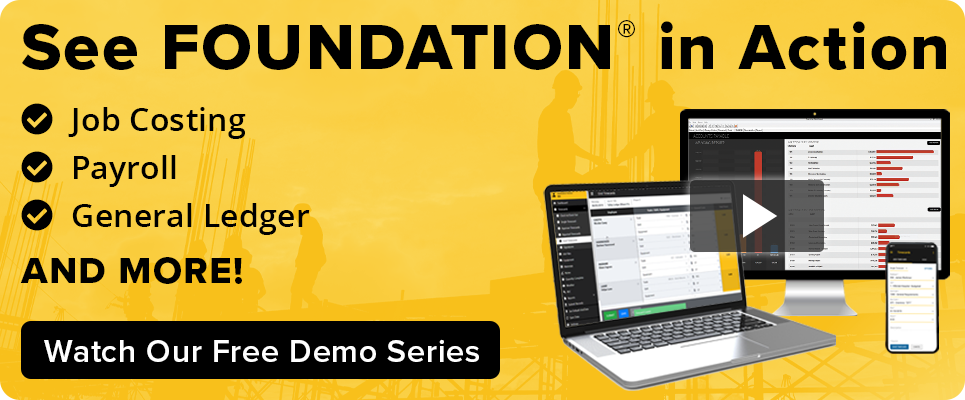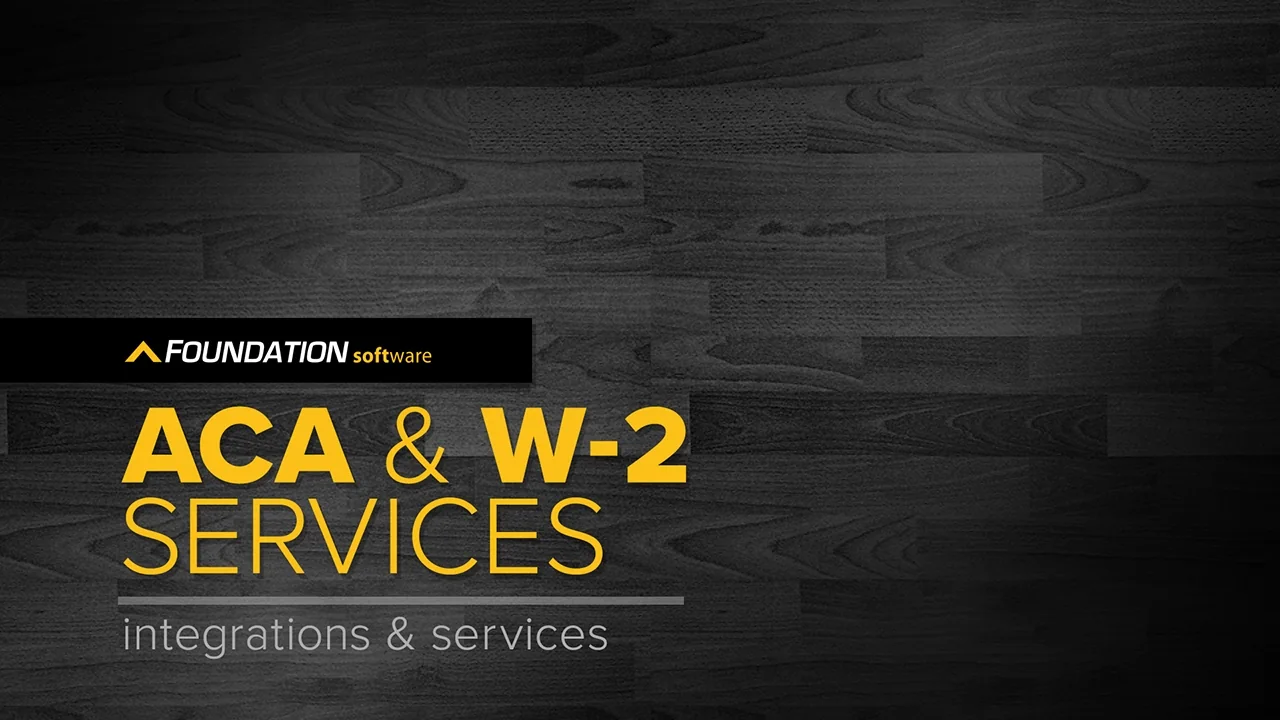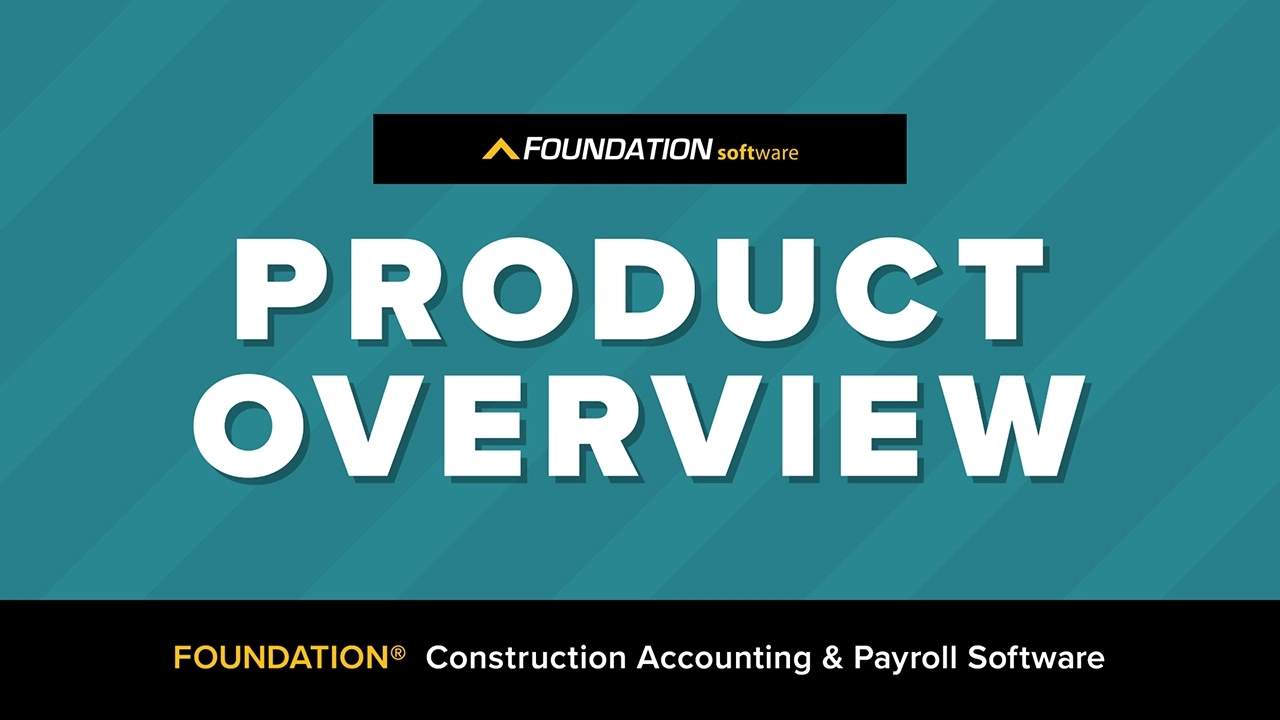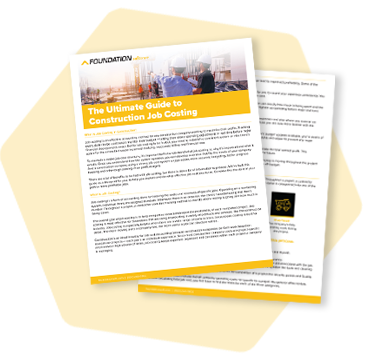
Construction megaprojects are becoming increasingly popular with the US government. These landmark builds have quickly become the biggest construction projects happening right now, effectively defining the construction industry for the coming years.
These projects can be extremely beneficial for contractors and can quickly become the cornerstone of a contractor’s portfolio. However, they can also come with their fair share of issues. According to McKinsey research firm, only one out of ten megaprojects is on budget, on schedule and delivering the promised benefits. It’s also estimated that 77% of megaprojects are at least 40% late.

While this isn’t always the case, it goes to show that these larger projects can take a lot out of a construction business. The key to delivering a construction megaproject in the green, so to speak, is to understand what goes into a project.
In this article, we will walk through the benefits of construction megaprojects, what contractors should know before taking on large-scale infrastructure projects and how construction accounting software can simplify the process.
Key Takeaways for Contractors:
- Megaprojects are large, federally funded construction projects valued at $35 million or more that lasts for more than one year.
- Contractors are attracted to construction megaprojects because they offer high earning potential, stability and long-term work and advancement opportunities.
- Contractors must consider the financial strain a megaproject can put on their company by properly understanding the project requirements and verifying their current structure can handle the project’s needs.
- Construction accounting software can offer enhanced job costing capabilities to accurately track expenses, advanced project management features for proper resource allocation and improve efficiency while mitigating cost overruns.
What are Construction Megaprojects?
The U.S. Department of Labor defines a megaproject as a large-scale construction project that are federally funded and valued at $35 million or more that lasts for more than one year.
Some examples of construction megaprojects include:
- Transportation projects: High-speed rail lines, major airports, long suspension bridges and underwater tunnels.
- Energy projects: Large dams, nuclear power plants and offshore wind farms.
- Urban development projects: Entire new city districts, massive skyscrapers and large-scale flood protection systems.
Construction megaprojects are enormous undertakings that push the boundaries of engineering, design and resource management. Because of their complexity, these projects can have a significant impact on a region’s economy, infrastructure and environment.
What are the Benefits of Construction Megaprojects for Contractors?
Construction megaprojects hold a certain value for contractors, despite their complexities.
- High Earning Potential: Megaprojects, including federal construction projects, have significant budgets, translating to potentially massive contracts for contractors. Landing a successful bid can secure a company’s financial well-being for years.
- Portfolio Boost: Successful completion of a megaproject adds a prestigious notch to a contractor’s belt. These projects showcase a company’s expertise in handling large-scale, complex endeavors, making them highly attractive for future bids.
- Stability and Long-Term Work: These major projects typically last several years, providing contractors with steady work and revenue. This stability allows for better workforce planning, resource allocation and overall company stability.
- Advancement Opportunities: Large projects often involve a variety of construction disciplines and cutting-edge techniques.
- This offers opportunities for contractors to stay at the forefront of the industry, gain experience in new areas and potentially expand their service offerings.
- Collaboration and Partnerships: Megaprojects often involve collaboration with other construction firms, engineers and specialists. These partnerships can foster long-term relationships that open doors to future projects and broaden a contractor’s network.
What are the Risks of Construction Megaprojects?
While megaprojects offer significant rewards, they require careful consideration and a strong risk management strategy before diving in. Because megaprojects are inherently complex, they come with:
- Unforeseen challenges
- Potential delays
- Cost overruns
- Legal disputes
Large-scale infrastructure developments are highly competitive, as the lucrative nature of these projects attracts numerous qualified bidders, making the bidding process fierce and competitive. These large projects may also require substantial investments in equipment and manpower so contractors must be prepared to spend money upfront. Cash flow management becomes crucial, and unexpected delays can lead to financial strain.
What Should Contractors Know Before Taking on Construction Megaprojects?
Before diving headfirst into the world of megaprojects, contractors should be well-prepared to handle the unique complex challenges these endeavors present. By thoroughly comprehending these aspects detailed below and approaching megaprojects with a well-defined plan, contractors can increase their chances of success in this high-stakes arena.
Explore the Project Scope and Requirements
Don’t underestimate the importance of meticulously reviewing the contract documents. Understand all project requirements, specifications, timelines and performance guarantees before signing. This can help you identify potential risks associated with the project, such as delays due to weather or material shortages ahead of time and quickly develop a comprehensive risk mitigation plan to address these challenges.
For these larger projects, collaboration with qualified subcontractors is essential. Subcontractors have specialized expertise and having their help can streamline the execution of specific technical tasks, leading to higher quality finishes and timely completions. Do your research and carefully evaluate their experience, expertise and financial stability before forming any partnerships. Communicate what you need them to accomplish in detail to ensure that aspect of the project will be completed.
Examine All Financial Considerations
One of the most common pitfalls of a megaproject is contractors taking on more than they can handle. Megaprojects require significant financial resources, so your company must have the financial capacity to handle upfront costs, potential delays and unexpected changes.
Develop a robust cash flow management plan to ensure smooth operations and track expenses accordingly. Factor in potential delays in payments from the owner and implement strategies to maintain a healthy cash flow throughout the project lifecycle.
Review Company’s Operational Capabilities
Megaprojects demand a skilled and experienced workforce. Conduct a thorough assessment of your existing team’s capabilities and identify any additional manpower or specialized training you will need. With that, you have to ensure you have access to the necessary equipment for the project’s scale and complexity.
Check the Legal and Regulatory Compliance Requirements
Because megaprojects are often government-funded, they require a certain level of compliance. Confirm your company possesses all necessary licenses and permits to operate in the specific location and handle the project’s requirements and regularly stay updated on relevant regulations and safety standards.
It may be necessary to secure adequate insurance coverage to protect your company from potential liabilities, such as:
- Worker injuries
- Property damage
- Environmental concerns
So, conduct proper research on what policies fit your company best.
Furthermore, with government-funded projects come additional payroll requirements like prevailing wage rates, union tracking and certified payroll reports. These regulations can be difficult to keep track of with a large workforce so be sure to stay up to date on requirements — consider implementing a payroll system that can both maintain accuracy and easily generate mandated reports.
Implement Sustainability Practices
With the impact a construction megaproject can have on environmental conditions, more and more government-funded projects are prioritizing sustainable construction methods. This means familiarizing yourself with construction practices that minimize environmental impact and promote resource efficiency like:
- Using recycled and reclaimed materials
- Integrating renewable energy
- Practicing prefabricated construction
- Utilizing green infrastructure designs
A contractor with expertise in sustainable infrastructure projects will be highly sought after by project owners, so be sure to familiarize yourself with the best practices for eco-friendly construction initiatives.
How Can Construction Accounting Software Handle Construction Megaprojects?
Construction accounting software plays a vital role in managing the complex financial aspects of megaprojects. By leveraging the capabilities of construction accounting software, contractors can navigate the financial complexities of megaprojects more effectively.
1. Enhanced Job Costing
Construction accounting software offers enhanced job costing for megaprojects. There are a multitude of cost factors to consider when taking on a megaproject and the software can track every expense meticulously, including:
- Labor
- Materials
- Equipment
- Permits
- Subcontractor fees
With this cost tracking comes real-time, accurate financial reports. These reports allow you to gain insights into project profitability by monitoring costs against budget allocations. This can help you identify variances early and take corrective actions to maintain the project’s financial health.
2. Streamlined Project Management
Construction accounting software centralizes data management so you can consolidate information into a single platform for easy access and improved visibility, including:
- Financial data
- Budgets
- Invoices
- Receipts
This helps facilitate effective collaboration between project managers, accountants and field personnel and keeps the team updated on the project’s financial status.
The software can also efficiently track and manage progress billings based on completed work and handle change orders seamlessly. This can help enable timely payments for crew members and help avoid cash flow disruptions.
3. Construction Reporting
Government-funded construction megaprojects require a variety of reports for transparency, accountability and demonstrative adherence to regulations. While specific reports may vary depending on the project’s nature and funding agency requirements, the most commonly required reports are:
- Progress Reports: These detail the project’s current status, including completed work, upcoming milestones and any schedule or budget deviations.
- Safety Reports: Document safety incidents, near misses and implemented corrective actions in these reports to ensure worker safety.
- Certified Payroll Reports: All Davis-Bacon jobs require workers to be paid the prevailing wage for the area that construction is being completed. With that, comes a certified payroll report that demonstrates compliance with these regulations.
- Labor Compliance Reports: These demonstrate adherence to equal employment opportunity (EEO) rules and regulations as well as union tracking. These reports may include proof of workforce demographics and compliance with a worker’s union Collective Bargaining Agreement (CBA’s).
- Environmental Impact Reports: Designed to assess the project’s environmental impact and outline mitigation strategies, this report ensures compliance with environmental regulations and minimizes environmental damage during construction.
- Financial Reports: Specific financial reports detail project expenditures, identify funding sources and track budget adherence. The government uses these to demonstrate responsible use of taxpayer dollars and financial oversight.
4. Risk Mitigation and Improved Efficiency
Being able to identify potential cost overruns and budget deviations, allows for proactive measures to be put in place quickly. Construction accounting software can mitigate financial risks by identifying these early on. The software can also automate accounts payables and receivables, to help optimize cash flow and streamline financial reporting for better financial control.
This financial data is preserved within the system so you can access this information again for future projects. Leverage historical data and real-time insights to create more accurate budgets and forecasts for any megaprojects you take on again.
What Should Contractors Consider When Choosing Software for Megaprojects?
Construction accounting software is not a one-size-fits-all situation. You have to choose the right fit for your company, so be sure to consider:
- Scalability: Select software that can scale to handle the immense data volume and complex financial transactions associated with megaprojects.
- Integration Capabilities: Ensure the software integrates seamlessly with other project management tools like your payroll software, time tracking app and crew scheduling system for improved data flow and streamlined workflows.
- Reporting and Analytics: Robust reporting features are crucial for generating detailed financial reports, variance analyses, certified payroll reports, EEO/minority compliance, union tracking and budget vs. actual comparisons for informed decision-making.
- Security and User Management: With sensitive financial data involved, prioritize software with robust security features and user access controls.
See Why FOUNDATION® is the Contractors Choice
Construction megaprojects may be huge undertakings, but the payoff for contractors is just as big. The key to handling these projects is to plan effectively beforehand. Knowing the common pitfalls other contractors face, establishing various strategies to mitigate financial risks and being prepared for the complexities and challenges of a megaproject can help ease the process.

Using construction accounting software can greatly simplify construction megaprojects for contractors. Software like FOUNDATION can offer enhanced job costing to accurately track expenses, advanced project management features for proper resource allocation, improved efficiency while mitigating cost overruns and comprehensive reporting capabilities to maintain government compliance.
Share Article
Keep on current news in the construction industry. Subscribe to free eNews!
Our Top 3 YouTube Videos
Learn about our software more in depth with product overviews, demos, and much more!

Our ACA reporting & e-filing services include official 1094-C and 1095-C IRS reporting, optional e-filing (no applying for a TCC code required), mailing to your employees and experienced support to help you.

There are plenty of reasons to make FOUNDATION your choice for job cost accounting and construction management software — just ask our clients!

From job cost accounting software, to construction-specific payroll. Get an overview on your next all-in-one back-office solution.



